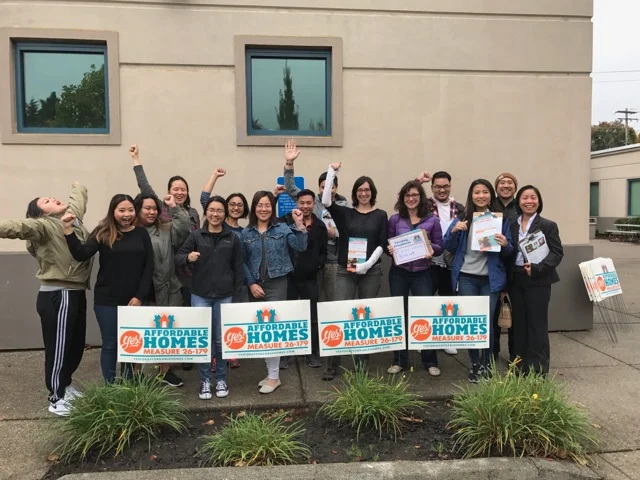We at the CCC have steadfastly moved towards our mission of racial justice despite the challenges and aggressions of white supremacy and racism exacerbated under the Trump presidency. In 2017, the community-based participatory research project in Washington county has made progress in its efforts to consult with public entities to share and inform equitable data collection practices as well as partner with local nonprofits to share our principles of research justice and raise awareness of online data equity tools. In addition to the Washington county project, CCC's research justice efforts have taken a leadership role in co-founding the Portland United Against Hate Initiative with CCC members, community-based organizations and the City of Portland.
Washington county research project: The steering committee outlined and proposed a resilience-based understanding of racial equity as well as a shift away from the ‘white savior complex’ of achieving racial equity through policymaking. At its core, the project seeks to understand the lived realities of communities of color, their experience with systemic oppression (both historical and contemporary), and reflect the strengths, resilience, and aspirations of communities of color. This project is rooted in equitable partnership and collaboration with impacted communities. Community leaders are playing an integral role in defining their priorities, articulating their experiences, and identifying strengths that can inform the research but also build the capacity of their community. Our inclusive, community-driven process is invaluable as it informs both the quantitative data analysis and the planned community specific conversations in Washington county over the summer.
We have also formed partnerships and created initiatives with CCC members and organizations (both public and private) that share our research justice vision of racial equity and will work to implement similar efforts into their practices. In the immediate aftermath of the US presidential elections, the CCC joined a group of community organizations to create a short and long term response to the uptick in hate behavior against communities of color. Through this collaborative partnership, the CCC helped found the Portland United Against Hate (PUAH) initiative. The CCC research justice program leads the data response efforts of PUAH and is working collaboratively with partners to create a hate documentation process that serves an authoritative memory and evidence of racism driven hate in a seemingly progressive city. In addition to PUAH, the CCC is also a stakeholder in the Regional Equity Atlas and leverages that role in advocating for community-driven research agendas and equity driven data.
Aside from starting new projects to progress our racial justice mission, the CCC research program has also worked with public partners to ensure the continuity of past advocacy. So far this year, the CCC has completed their research consultation with West Multnomah Soil and Water Conservation District and helped them create culturally appropriate, data collection surveys that assist in determining the extent of racial disparities in their jurisdiction. We have also commenced a consultation with Oregon Health Authority about the Race Ethnicity Language and Accessibility data collection standards, and have begun advising Portland State University (PSU) and Joint Office of Homeless Services on research methods to accurately capture the houselessness experiences of communities of color in Multnomah County.





















